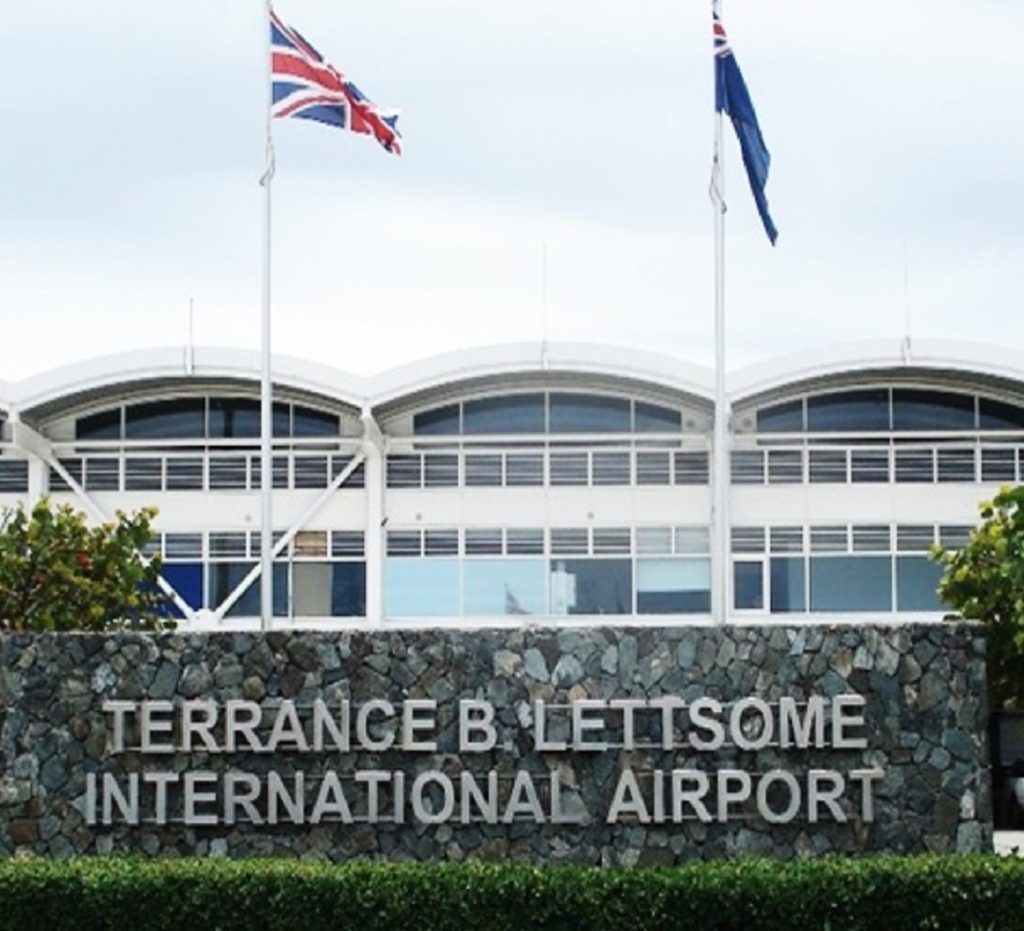Dropping off and picking up persons at the airport may soon become a thing of the past.
Host of Honestly Speaking Claude Skelton Cline is pushing back at what he calls things just being thrown down the BVI’s throat with no proper consultation with the public.
During his programme last week, Skelton Cline brought to the fore, complaints he received from taxi service providers and other persons that the UK’s Air Safety Support International, ASSI has now mandated that the airport could be closed if they don’t move people away from being able to drive in to the airport where regular drop-offs and pick-ups are done.

Skelton Cline believes in order to push back against things like these, the territory could institute its own Civil Aviation Authority.

Meanwhile the BVI Airports Authority has given a response on the issue.
In a statement the BVIAA said in 2021, during a scheduled aviation security audit conducted by Air Safety Support International (ASSI), the British Virgin Islands Airports Authority (BVIAA) was issued a partial non-compliance finding related to Landside Security at the Terrance B. Lettsome International Airport.
It said this finding pertained to BVIAA’s partial adherence to regulatory requirements established under the International Civil Aviation Organization (ICAO) framework.
The statement said that complementary physical measures such as traffic calming bumps, bollards, vehicle barriers, and controlled access points are also typically expected to reinforce the stand-off zone and limit high-speed vehicular approaches to terminal areas.
It said at the time of the audit, BVIAA had in place several fundamental landside security elements. However, the Authority had not fully implemented key components required under ICAO standards, including the 30-meter stand-off zone and traffic calming infrastructure near the terminal’s vehicular approach routes.
The BVIAA emphasized that full compliance would have required either relocating the terminal or significantly restricting public access to a portion of the parking lot and entryway, these were options that were considered impractical due to the airport’s geographic and operational constraints.
And the authority said while it did not support full implementation of the physical stand-off zone due to the substantial impact it would have had on functionality, it remained committed to enhancing security and achieving the intent of the regulation through feasible alternatives.
BVIAA said a series of constructive discussions with ASSI resulted in the development and submission of a mitigation plan, which proposed compensatory measures including, Installation of reinforced physical barriers near the terminal perimeter; Strategic deployment of traffic calming bumps to reduce vehicle speed and delay direct terminal approach, Installation of additional bollards at the front of the terminal building and Revised traffic circulation plans to minimize unregulated vehicular access.
The statement said that ASSI reviewed and accepted the mitigation plan, recognizing it as a proportionate and context-sensitive approach to meeting the security objectives and in implementation of these mitigation measures is currently in progress, with phased upgrades being overseen by BVIAA’s security and operations teams.
According to the BVIAA, it is critical to highlight that prolonged or unresolved non-compliance with ICAO security standards, particularly regarding landside protection, can have adverse implications for international operations, especially for U.S.-registered commercial carriers.
It said an agency such as the U.S. Transportation Security Administration (TSA) conduct periodic assessments of the Terrance B. Lettsome International Airport, as U.S. carriers provides air service at this airport.
The statement notes that unaddressed deficiencies in landside security can lead to, Heightened scrutiny and additional inspections by U.S. authorities, Operational restrictions or conditional service approvals for U.S. carriers and Potential suspension of U.S. commercial service to the airport.
The BVIAA believes such outcomes could negatively affect the Territory’s connectivity, tourism, and broader economic activity, adding that the ongoing implementation of the approved mitigation plan reflects the authority’s commitment to addressing security vulnerabilities while balancing practical and infrastructural limitations.

